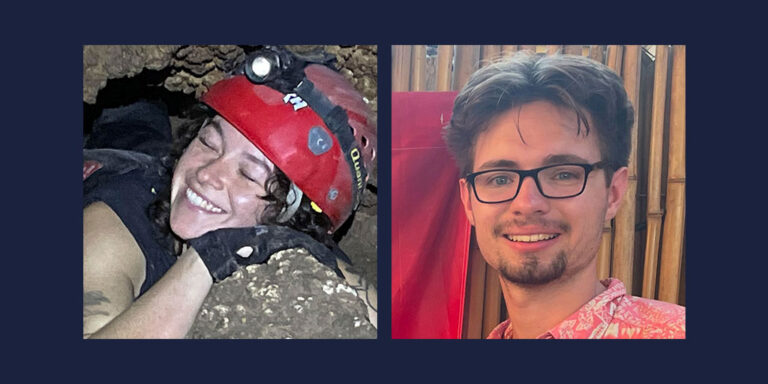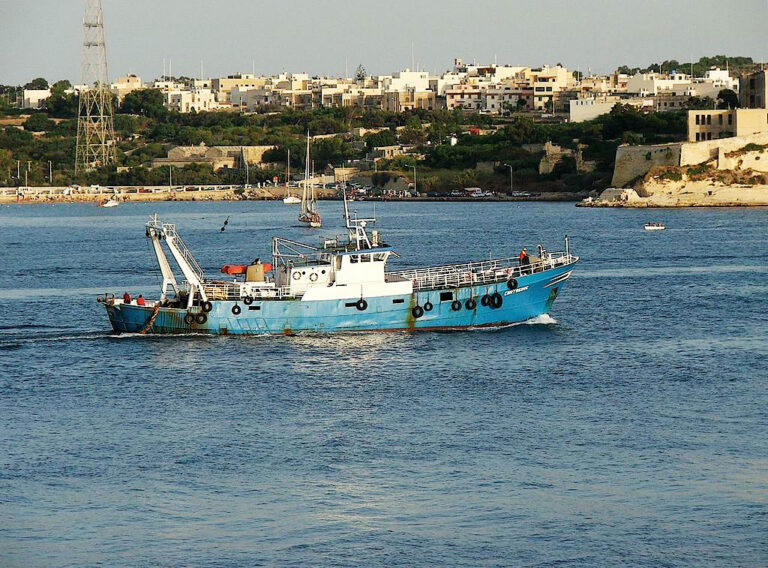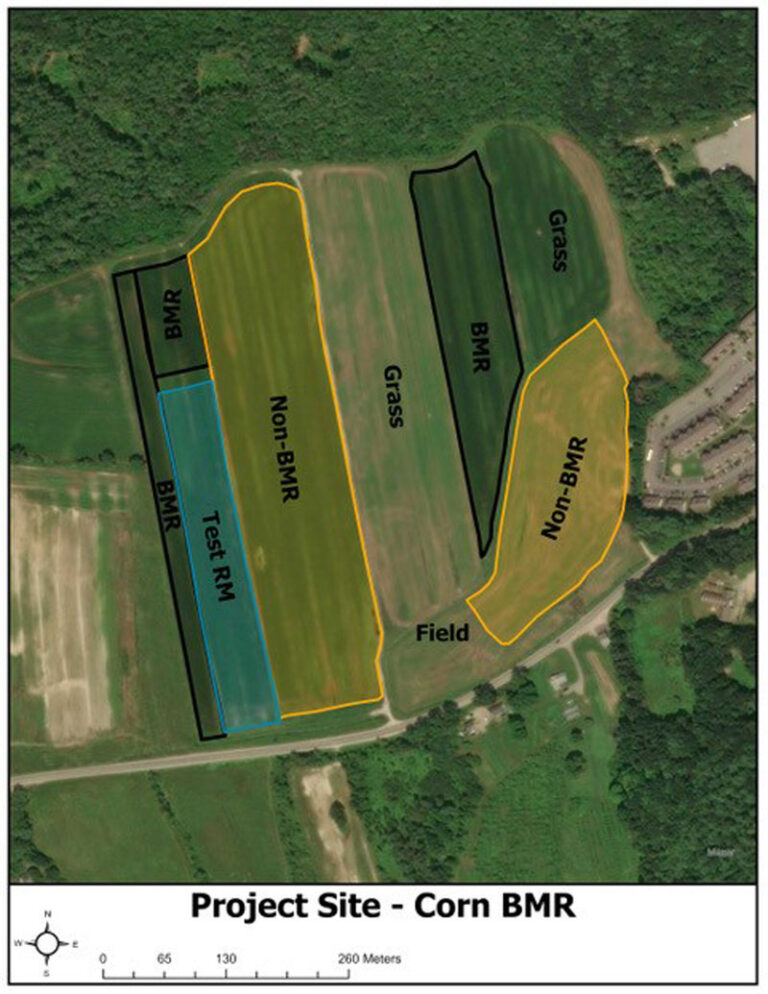2018 AAG Award Recipients Announced
The American Association of Geographers congratulates the individuals named to receive an AAG Award. The awardees represent outstanding contributions to and accomplishments in the geographic field. Formal recognition of the awardees will occur at the 2018 AAG Annual Meeting in New Orleans during the AAG Awards Luncheon on Saturday, April 14, 2018.
2018 The AAG Stanley Brunn Award for Creativity in Geography
The AAG Stanley Brunn Award for Creativity in Geography is given annually to an individual geographer or team of geographers that has demonstrated originality, creativity and significant intellectual breakthroughs in geography. The award includes a prize of $1,000.
 Mei-Po Kwan, University of Illinois Urbana-Champaign
Mei-Po Kwan, University of Illinois Urbana-Champaign
Mei-Po Kwan, Professor of Geography and Geographic Information Science at the University of Illinois at Urbana-Champaign, is one of the most creative and transformative geographers of our time. Her research has made groundbreaking theoretical contributions to health, mobility, urban, and transportation geographies as well as broadly to geographic information science (GIScience). Kwan’s articulation of the uncertain geographic context problem highlights a fundamental methodological problem in all studies that examine the effects of area-based environmental variables on individual behaviors or outcomes. The problem is now widely recognized as a significant issue in social science, health, and environmental science, in addition to geographic and GIScience research.
Combining empirical research with original theory, Kwan has continuously developed and advanced paradigm-shifting ideas (e.g., feminist visualization, hybrid geographies, affective GIS, and algorithmic geographies) that profoundly challenge how geographers think about disciplinary dynamics, geographic method, and core tendentious binaries in the discipline (e.g., quantitative vs qualitative geography; GIScience vs social theory). Kwan’s work on space-time accessibility fundamentally altered our understanding of the methods used to study access by underprivileged populations to urban facilities and opportunities. She also played a key role in the integration of GIS with qualitative methods, and pioneered the development of a GIS-based approach to narrative analysis (i.e., geo-narrative) that has advanced qualitative methodologies in significant ways.
The AAG Stanley Brunn Award for Creativity in Geography is bestowed annually on an individual geographer or team that has demonstrated originality, creativity, and significant intellectual breakthroughs in geography. The award honors those who have a sustained, impressive and recognized record of creative and cutting-edge work, who have made significant contributions to new geographic methods or ways of thinking, or who have introduced new and meaningful ways of thinking about human/environment relations at local or global scales. Mei-Po Kwan is the sixth recipient of the award. Previous recipients of the Stanley Brunn Award are David Harvey (2017), Michael Goodchild (2016), Susan Hanson (2015), Robert B. Kates (2014), and Yi-Fu Tuan (2013).
The 2018 Marble-Boyle Undergraduate Achievement Award in Geographic Science

The Marble-Boyle Undergraduate Achievement Award recognizes excellence in academic performance by undergraduate students from the U.S. and Canada who are putting forth a strong effort to bridge geographic science and computer science as well as to encourage other students to embark upon similar programs. The award is an activity of the Marble Fund for Geographic Science of the AAG.
Noah Irby, University of North Dakota
2018 Susan Hardwick Excellence in Mentoring Award
The AAG bestows an annual award recognizing an individual geographer, group, or department, who demonstrates extraordinary leadership in building supportive academic and professional environments and in guiding the academic or professional growth of their students and junior colleagues. The late Susan Hardwick was the inaugural Excellence in Mentoring awardee. The Award was renamed in her honor and memory, soon after her passing.
 David Kaplan, Kent State University
David Kaplan, Kent State University
The Committee on the Status of Women in Geography and the Enhancing Diversity Committee unanimously elected to award David Kaplan the 2018 AAG Susan Hardwick Excellence in Mentoring Award. David Kaplan is an exceptional mentor, serving as principal advisor to at least 26 master’s thesis student committees and 11 PhD student committees, along with serving on the committees of dozens of other student projects. He has a proven track record of successfully graduating students and setting them off into academic or other positions. One of his more recently graduated PhD advisees calls him a “lifelong advisor” who has “enduring and genuine concern” for his students. In addition, his support of junior peers both at his institution and elsewhere, speaks to his commitment to offer sound counsel and valuable information to others in order to advance and develop their own paths to academic and professional success. A colleague of Kaplan’s writes, “His insightful comments have been very beneficial for my research and later career….His continuous support has been critical for my professional development”.
David Kaplan’s direct efforts both through publications and external funding, as well as his extraordinary dedication and service to his department, institution, and the AAG, exemplify the many ways that he is committed to enhancing diversity and inclusion in the discipline of geography. For these reasons, we are pleased to present the 2018 Susan Hardwick Excellence in Mentoring Award to David Kaplan.
2018 Enhancing Diversity Award
The AAG Enhancing Diversity Award honors those geographers who have pioneered efforts toward, or activelyparticipate in efforts towards encouraging a more diverse discipline.
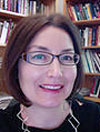 Banu Gökarıksel, University of North Carolina Chapel Hill
Banu Gökarıksel, University of North Carolina Chapel Hill
Dr. Banu Gökarıksel of the University of North Carolina – Chapel Hill has earned the gratitude and respect of students and colleagues alike for her unwavering commitment to mentoring, her dedication to encouraging young scholars to enter the field of geography, and the lasting impact from her leadership role as Director of Graduate Students (DGS). Despite her own recent immigrant status, her position as one of the first women to get tenure in her department, and her prominent role as DGS, she has never hesitated to stand up for students and scholars who she felt were being marginalized. As DGS she has answered the call for Geography departments and faculty to recognize diversity not just through their recruitment policies, but also through supportive practices designed for a diverse graduate student population. Dr. Gökarıksel is able to translate feedback from her colleagues and students into impactful action. For example, after hearing graduate student concerns about cost of living, she facilitated conversations on summer funding. Within a few weeks, these conversations resulted in summer grants for several graduate students. Dr. Gökarıksel received her university’s most prestigious teaching award, the Chapman Award. This is partly due to her careful and thoughtful engagement with issues such as Islamophobia, xenophobia, and the associated forms of gender-based discrimination. Banu is a stellar example of someone who works both behind the scenes and in a leadership role, doing work that is often unrewarded and invisible. She has created lasting institutional change in her department through her work to retain and recruit women and scholars of color through mentoring and through her improvement of the graduate program. As co-editor of the Journal of Middle Eastern Women’s Studies she has created a venue that has diversified rigorous peer reviewed scholarship. Her commitments to enhancing diversity became even more apparent in her administrative efforts as a faculty member at UNC, where she works tirelessly to enhance the diversity of her department and the discipline. Dr. Gökarıksel was co-organizer for the 2017 Feminist Geography Conference, and clearly demonstrated her commitment to including diverse and marginalized voices. In the midst of the conference, the new US administration’s rules regarding entry to the United States from several Muslim majority countries were announced. Dr. Gökarıksel immediately mobilized efforts to remotely connect those newly banned participants. She also coordinated an effort among the feminist geographers present to support their colleagues’ scholarship, if they were unable to come to the United States. Dr. Gökarıksel has been selected to receive the AAG Enhancing Diversity Award not only because of these accomplishments, but because her actions provide a model for other AAG members invested in enhancing the diversity of our discipline.
2018 AAG Honorary Geographer
The AAG annually selects an individual as the year’s Honorary Geographer. The award recognizes excellence in research, teaching, or writing on geographic topics by non-geographers. Past recipients include Stephen Jay Gould, Jeffrey Sachs, Paul Krugman, Barry Lopez, Saskia Sassen and Maya Lin.
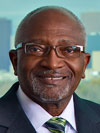
Robert Bullard, Texas Southern University
In making its selection, the Executive Committee of the AAG recognized the important foundational role that Dr. Bullard has played in the study of environmental and transportation justice and the skills he has shown in translating those ideas to policy makers and wider public groups. This work has been invaluable to scholars in geography, who increasingly address issues of inequality, spatial justice, and environmental racism. Bullard’s ability to mix advocacy with strong basic research is a model for many of us in geography.
2018 AAG Presidential Achievement Award
The AAG Presidential Award is given with the purpose of recognizing individuals for their long-term, major contributions to geography. The Past President has the honor of bestowing this distinction on behalf of the discipline and the association.
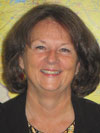 Susan Cutter, University of South Carolina
Susan Cutter, University of South Carolina
The Presidential Achievement Award recognizes Dr. Cutter’s transformative research on disaster vulnerability/resilience science which has served as an important bridge between physical and human geography. Her leadership in disaster vulnerability/resilience research has both extended the reach of the discipline to other academic disciplines and to policy communities, and also brought new insights and approaches to geography. The award also recognizes Dr. Cutter’s early attention to issues of race, class and environmental justice and her role in bringing these important concerns to the discipline of geography. In addition, the award recognizes her many service contributions to the discipline and beyond, including her leadership as President of the Association of American Geographers and President of the Consortium of Social Science Associations.
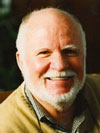 Billie L. Turner, II, Arizona State University
Billie L. Turner, II, Arizona State University
The Presidential Achievement Award recognizes Dr. Turner’s transformative research on development of land use/cover change science which has served as an important bridge between physical and human geography, and between historic/prehistoric analysis and contemporary issues. His leadership in integrating geographical sciences with wider academic and policy concerns in the areas of global change, earth systems and sustainability science, and his early recognition of the importance of these issues to geography, is also recognized by this award. The award also recognizes Dr. Turner’s extensive contributions representing geography on important national and international bodies and initiatives including the International Geosphere-Biosphere Programme, the International Human Dimensions Programme, and the U.S. National Climate Assessment and Associate Editorship of the Proceedings of the National Academy of Sciences.
2018 The AAG Harold M. Rose Award for Anti-Racism Research and Practice
The Rose Award was created to honor Harold M. Rose, who was a pioneer in conducting research on the condition faced by African Americans. The award honors geographers who have a demonstrated record of this type of research and active contributions to society, and is awarded to individuals who have served to advance the discipline through their research, and who have also had an impact on anti-racist practice.
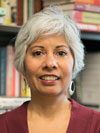 Laura Pulido, University of Oregon
Laura Pulido, University of Oregon
Over her two and half decade career as a professional geographer, few scholars have impacted the study of race and the environment as much as Professor Laura Pulido. Her work is foundational to a whole generation of race scholars in geography and beyond, and her commitment to anti-racist practice is central to her work in the discipline. She has mentored countless students, junior faculty, and colleagues throughout her career, focusing on supporting scholars of color and scholars engaged in anti-racist research.
Professor Pulido’s work on environmental racism is path-breaking and documents the central role of geography in the continuing exposure of environmental hazards and the pivotal role of white privilege and white supremacy in the uneven geography of environmental hazard exposure. Also, her work on anti-racist activism in Southern California and her book Black, Brown, Yellow, and Left is a seminal piece of scholarship that has driven conversations in Geography and Ethnic and Racial Studies about race, politics and anti-racist activism. Through this work, she introduces the concept of “differential racialization” and opened space for a range of academic disciplines to think geographically about racial identity formation and the way racialization processes are impacted by and through geography.
In addition to these scholarly contributions, Dr. Pulido is tireless in her dedication to helping new generations of scholars enter into the field. Like Harold Rose himself, who mentored generations of students at UW-Milwaukee, Professor Pulido’s generous support of students and colleagues in geography is a vital part of her anti-racist praxis.
